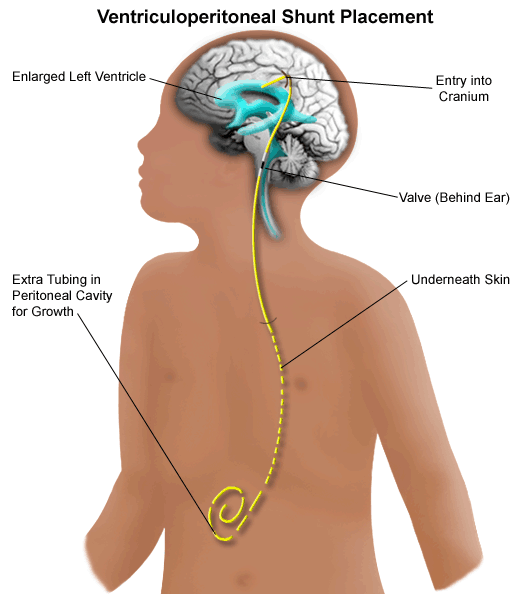
shunt [shuhnt] ExamplesWord Origin See more synonyms for shunt on Thesaurus.com verb (used with object)
- to shove or turn (someone or something) aside or out of the way.
- to sidetrack; get rid of.
- Electricity.
- to divert (a part of a current) by connecting a circuit element in parallel with another.
- to place or furnish with a shunt.
- Railroads. to shift (rolling stock) from one track to another; switch.
- Surgery.
- to divert blood or other fluid by means of a shunt.
- the tube itself.
- to move or turn aside or out of the way.
- (of a locomotive with rolling stock) to move from track to track or from point to point, as in a railroad yard; switch.
noun
- the act of shunting; shift.
- Also called bypass. Electricity. a conducting element bridged across a circuit or a portion of a circuit, establishing a current path auxiliary to the main circuit, as a resistor placed across the terminals of an ammeter for increasing the range of the device.
- a railroad switch.
- Surgery. a channel through which blood or other bodily fluid is diverted from its normal path by surgical reconstruction or by a synthetic tube.
- Anatomy. an anastomosis.
adjective
- Electricity. being, having, or operating by means of a shunt: a shunt circuit; a shunt generator.
Origin of shunt 1175–1225; (v.) Middle English schunten, shonten to shy (said of horses); (noun) Middle English, derivative of the v.; akin to shun Related formsshunt·er, nounun·shunt·ed, adjective Related Words for shunt halt, prevent, forestall, avoid, deter, foil, preclude, whirl, swivel, rotate, wiggle, veer, twirl, fluctuate, dangle, hang, lurch, wave, turn, pitch Examples from the Web for shunt Contemporary Examples of shunt
You know, like Nixon tried to shunt responsibility for the break-in on to Liddy, Sturgis, et al.
It’s Time to Get More Women in the NFL Boardroom
Robert Silverman
September 12, 2014
Television stations can turn down their ads for any reason or shunt them into any time spot.
Is Super PACs’ Influence on the 2012 Presidential Election Overhyped?
Ben Jacobs
February 16, 2012
Instead of attacking neighbors, why not shunt the wrath onto one poor soul who stands in for all would-be enemies?
GOP Primaries Provide a Feast for Our Schadenfreude Appetite
Eric G. Wilson
January 19, 2012
Historical Examples of shunt
Its function is to shunt the lift out of the gas, and this it will do without watching.
Rudyard Kipling
Look at that meter—and I’ve had to throw in number ten shunt!
Edward Elmer Smith
All right,” he answered, endeavoring to look unconcerned, “shunt us off.
Edward Robins
It would be cowardly to shunt this wretched task off on somebody else.
Sara Ware Bassett
Clear the fishing fleet and shunt the Florence to the rocks with the wind and current.
Brayton Norton
British Dictionary definitions for shunt shunt verb
- to turn or cause to turn to one side; move or be moved aside
- railways to transfer (rolling stock) from track to track
- electronics to divert or be diverted through a shunt
- (tr) to evade by putting off onto someone else
- (tr) motor racing slang to crash (a car)
noun
- the act or an instance of shunting
- a railway point
- electronics a low-resistance conductor connected in parallel across a device, circuit, or part of a circuit to provide an alternative path for a known fraction of the current
- med a channel that bypasses the normal circulation of the blood: a congenital abnormality or surgically induced
- British informal a collision which occurs when a vehicle runs into the back of the vehicle in front
Word Origin for shunt C13: perhaps from shunen to shun Word Origin and History for shunt v.
early 13c., “to shy, start,” perhaps from shunen “to shun” (see shun), and altered by influence of shot or shut. Meaning “to turn aside” is from late 14c.; that of “move out of the way” is from 1706. Adopted by railways from 1842. Related: Shunted; shunting.
n.
1838, in railway use, from shunt (v.). By technicians in the sense of “electrical conductor” from 1863. Medical use dates from 1923.
shunt in Medicine shunt [shŭnt] n.
- A passage between two natural body channels, such as blood vessels, especially one created surgically to divert or permit flow from one pathway or region to another; a bypass.
 Liberal Dictionary English Dictionary
Liberal Dictionary English Dictionary